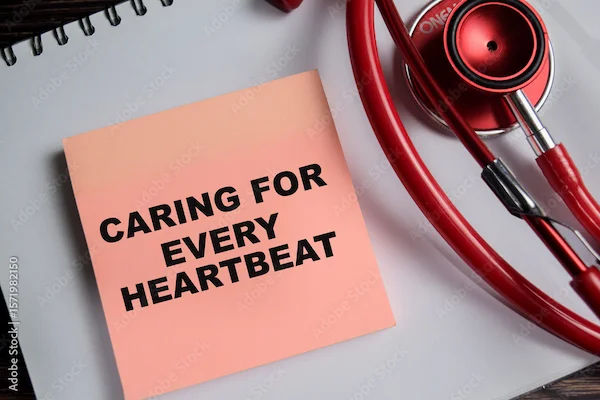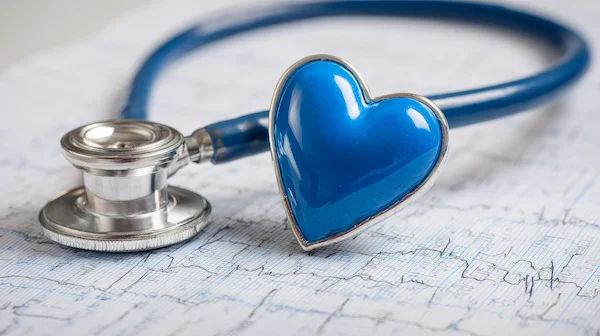- Male
- 39 Years
- 22/01/2025
Why do I get this pain in my chest on the left side when I climb stairs or even shout? I've done all the tests like ECG, Echo, TMT, and CT angio, and they all came back normal. The CT showed no blockage but mentioned deep myocardial bridges. My cardiologist says it's not angina or heart disease but put me on Beta lock 0.25 twice a day. Anytime I get startled awake or shout when I'm angry, the pain starts again, spreading to my left back, arms, and neck. It's so confusing because the doc says it's nothing serious, but the pain keeps coming back and it's worrisome. Do you have any idea what might be going on?
Answered by 1 Apollo Doctors
It sounds like you may be experiencing symptoms of anxiety or panic attacks, which can manifest as chest pain and other physical symptoms. The Beta Block medication prescribed by your cardiologist can help manage these symptoms by reducing the effects of adrenaline on your body. In addition to the medication, it may be helpful to practice stress-reducing techniques such as deep breathing exercises, mindfulness, and regular physical activity. If these symptoms persist or worsen, it would be advisable to follow up with your cardiologist for further evaluation and possibly a referral to a mental health professional for additional support. Remember to take your Beta Block medication as prescribed and try to incorporate stress management techniques into your daily routine to help alleviate your symptoms.
Dr. Ibrahim Suggests...
Consult a Cardiologist
Answered 04/07/2025
0
0

More Cardiology Health Queries
View allLately, Ive been noticing that every time I stand up or go for a walk, my heart starts racing to around 130bpm, and it doesnt calm down until I sit or lie down. My chest hurts, and my legs feel weak and shaky during these times too. I did have an iron deficiency last year, but it never made me feel like this, and even though it's still slightly low, my recent results show it's getting better. Ive had an ECG done, and that seemed fine, so I'm wondering if I should be seeing a cardiologist. Could this be something serious?
Yes, given your symptoms of a racing heart rate when standing or walking, chest pain, and weakness in your legs, it would be prudent to visit a cardiologist. These symptoms may indicate a condition called postural orthostatic tachycardia syndrome (POTS) or other cardiovascular issues that require further evaluation. Even though your ECG is fine and your iron levels are improving, it is essential to rule out any underlying heart conditions or dysautonomia. A cardiologist can perform additional tests, such as a Holter monitor, echocardiogram, or tilt table test, to better understand the cause of your symptoms and recommend an appropriate treatment plan.
Answered by 1 Apollo Doctors
I'm really puzzled about my mom's test results. Her echocardiogram showed an LVEF of 40-45, but a recent cardiac MRI said it's just 25. This just doesn't seem right because she's not showing any serious symptomsno shortness of breath, no swelling in her legs or stomach. She goes about her day without any issues at all. Could there be an error with the cardiac MRI?
It is possible that there could be a discrepancy between the two imaging tests. However, it is important to follow up with your cardiologist to discuss these findings and determine the best course of action. In the meantime, medications like Carvedilol (Coreg) at a dosage of 6.25mg twice daily and Lisinopril (Zestril) at a dosage of 5mg once daily can be considered to help improve heart function.
Answered by 1 Apollo Doctors
I'm currently taking Teleact 40 in the morning and Cilny 10 along with Concor 5 at night. I've been feeling kind of light-headed in the mornings though. Do you think it would be better to switch things up and take the Telmisartan and Cilnidipine combo in the morning and the Concor 5 at night instead? I just want to make sure I'm managing my blood pressure in the best way possible.
Switching to Telmisartan (brand name: Telma) + Cilnidipine (brand name: Cilacar) combination in the morning can help in managing your blood pressure more effectively. You can continue taking Concor 5 at night for better control. The recommended dosage for Telmisartan + Cilnidipine combination would be as per your doctor's prescription.
Answered by 1 Apollo Doctors
Disclaimer: Answers on Apollo 247 are not intended to replace your doctor advice. Always seek help of a professional doctor in case of an medical emergency or ailment.


